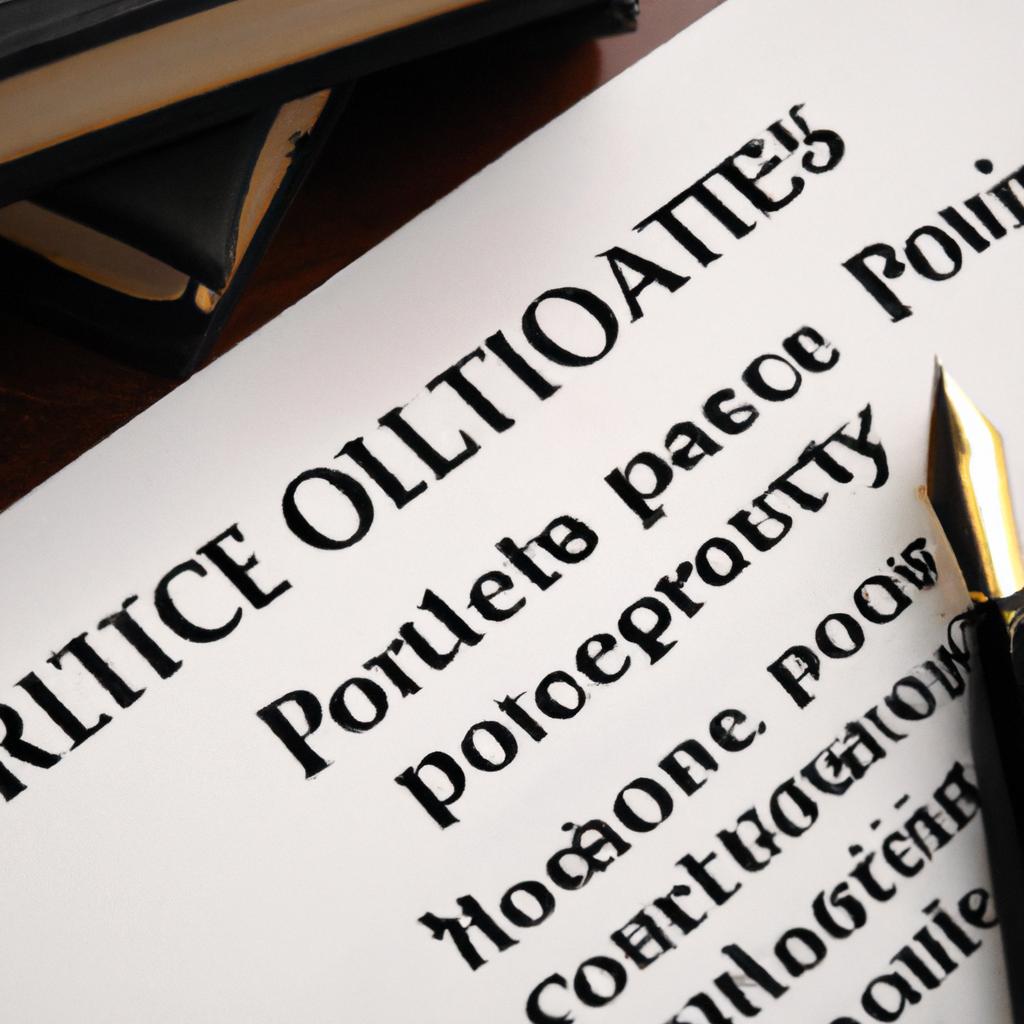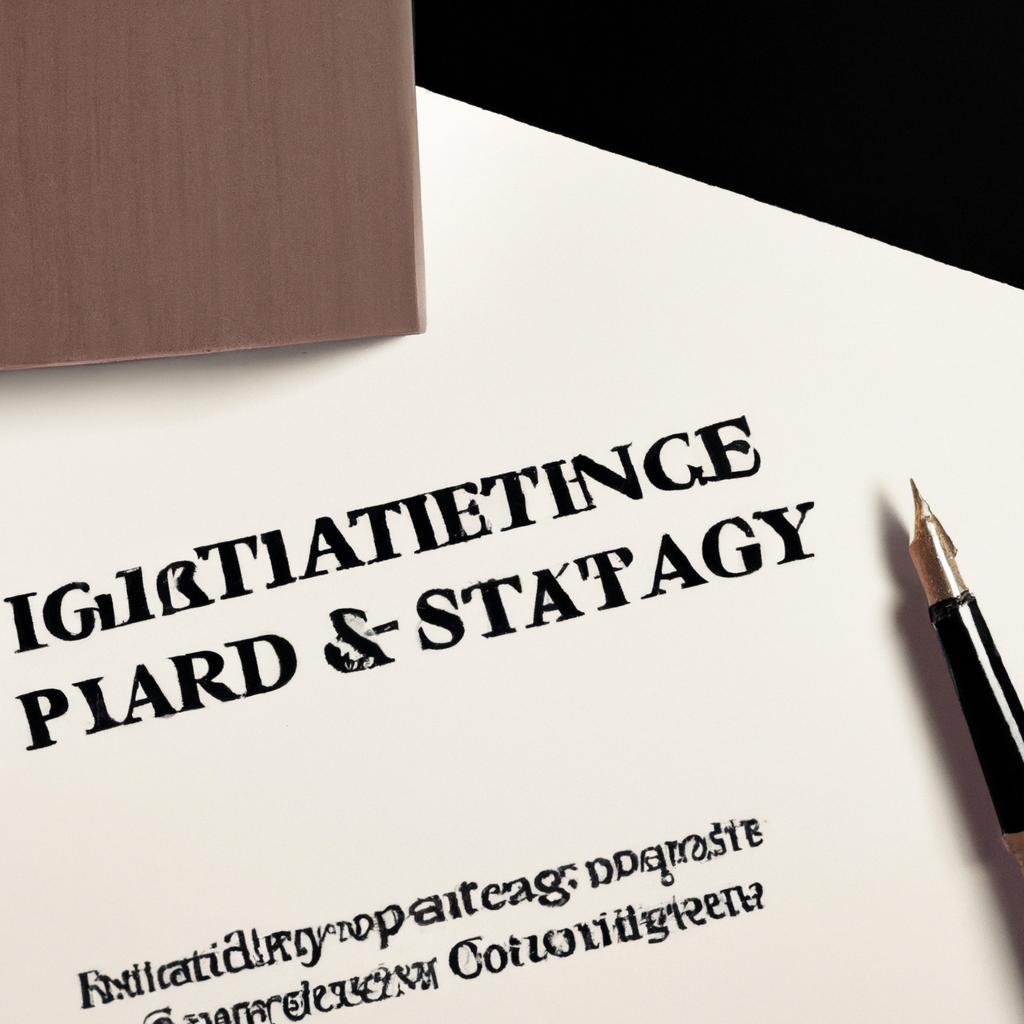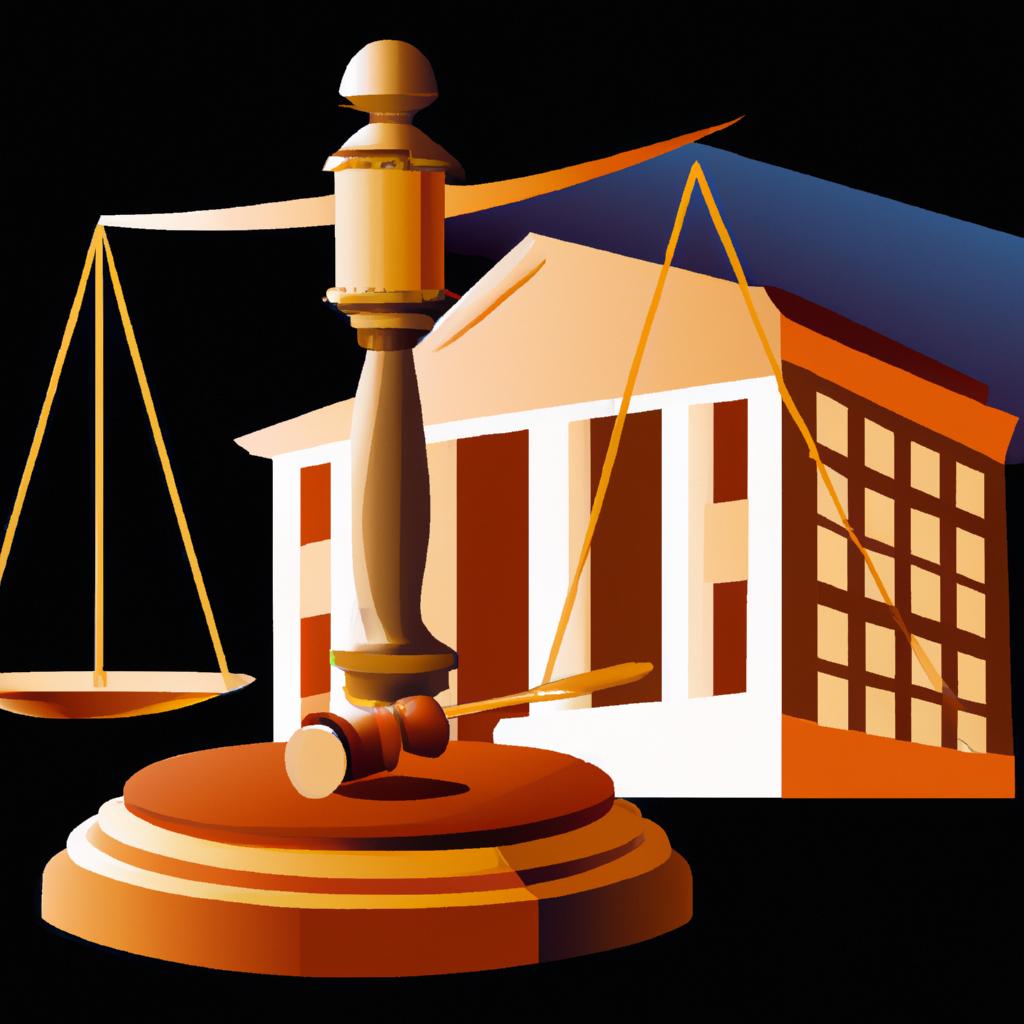Probate attorneys play a crucial role in the legal process of administering an individual’s estate after their passing. At Morgan Legal Group in New York City, our team of experienced attorneys specializes in guiding clients through the complexities of probate law. From drafting Wills to navigating the court system, our firm is dedicated to providing expert representation and peace of mind during this challenging time. In this article, we will delve into the important responsibilities and functions of probate attorneys to demystify the process for our clients.
Understanding the Role of Probate Attorneys in Estate Administration
Probate attorneys play a crucial role in the estate administration process, ensuring that the wishes of the deceased are carried out in a timely and efficient manner. These legal professionals specialize in navigating the complexities of probate law and guiding clients through the often confusing and overwhelming process of settling an estate.
Here are some of the key responsibilities of probate attorneys:
- Representing Executors: Probate attorneys represent executors, who are responsible for managing the deceased’s estate and distributing assets to beneficiaries according to the terms of the will.
- Resolving Disputes: Probate attorneys help resolve any disputes that may arise among heirs or beneficiaries, ensuring that the estate is distributed fairly and in accordance with the law.

Navigating the Complexities of Probate Court Proceedings
Probate attorneys play a crucial role in guiding individuals through the complex and often overwhelming process of probate court proceedings. These legal professionals specialize in navigating the intricacies of estate administration, ensuring that the deceased’s assets are distributed in accordance with their wishes and state laws. From filing necessary court documents to representing clients in probate court hearings, probate attorneys provide invaluable support and expertise every step of the way.
Probate attorneys are well-versed in the legal intricacies of probate law, allowing them to effectively address any challenges that may arise during the probate process. Whether it involves resolving disputes among beneficiaries, determining the validity of a will, or handling complex estate tax matters, probate attorneys work diligently to protect their clients’ interests and ensure a smooth probate administration. With their in-depth knowledge of estate planning laws and regulations, probate attorneys serve as trusted advisors who help individuals navigate the complexities of probate court proceedings with confidence and peace of mind.

Strategic Guidance on Probate Disputes and Conflict Resolution
Probate attorneys are legal professionals who specialize in handling the complex process of probate disputes and conflict resolution. These attorneys provide strategic guidance to clients who are involved in disputes over the distribution of assets, disagreements among heirs, challenges to the validity of a Will, or any other conflicts that may arise during the probate process.
Probate attorneys play a crucial role in helping clients navigate the legal complexities of probate disputes. They provide expert advice on estate planning, trust administration, and Will contests. With their knowledge and experience, probate attorneys help clients achieve fair and equitable resolutions to their disputes, ensuring that the wishes of the deceased are carried out in accordance with the law.

Recommendations for Choosing the Right Probate Attorney for Your Needs
When it comes to choosing the right probate attorney for your needs, there are several key recommendations to keep in mind. First and foremost, it is essential to look for an attorney who specializes in probate law and has extensive experience in handling probate cases. This expertise will ensure that your attorney is well-equipped to navigate the complexities of the probate process and provide you with the guidance and support you need.
Additionally, it is important to consider the reputation and track record of the attorney you are considering. Look for recommendations from past clients and reviews online to get a sense of their level of professionalism and success. Finally, make sure to schedule a consultation with the attorney to discuss your specific needs and ensure that you feel comfortable working with them. By following these recommendations, you can confidently choose the right probate attorney to assist you with your unique situation.
Q&A
Q: What do probate attorneys do?
A: Probate attorneys are legal professionals who specialize in navigating the probate process, which is the legal process of distributing a person’s assets after they pass away.
Q: What is the probate process?
A: The probate process involves validating the deceased person’s will, identifying and inventorying their assets, paying off debts and taxes, and distributing the remaining assets to heirs or beneficiaries.
Q: What tasks do probate attorneys typically handle?
A: Probate attorneys assist with drafting and filing legal documents, representing clients in probate court, negotiating with creditors, and ensuring that the deceased person’s wishes are carried out properly.
Q: Why would someone need a probate attorney?
A: Hiring a probate attorney can help streamline the probate process, minimize disputes among heirs, and ensure that all legal requirements are met in a timely manner.
Q: How do probate attorneys differ from other types of lawyers?
A: Probate attorneys specialize in estate planning and administration, whereas other types of lawyers may focus on different areas of law such as criminal defense, personal injury, or business law.
To Wrap It Up
In conclusion, probate attorneys play a vital role in guiding individuals through the complex process of settling an estate after someone passes away. From assisting with the distribution of assets to resolving disputes among beneficiaries, these legal professionals provide valuable expertise and guidance during a challenging time. If you find yourself in need of assistance with probate matters, don’t hesitate to seek out the support of a knowledgeable attorney who can help navigate you through the intricacies of the probate process.
 When a loved one passes away, their assets and debts must be distributed amongst their heirs according to their wishes. This process is known as “probate,” and it can be quite complex and overwhelming for those left behind. That’s where probate attorneys come in.
When a loved one passes away, their assets and debts must be distributed amongst their heirs according to their wishes. This process is known as “probate,” and it can be quite complex and overwhelming for those left behind. That’s where probate attorneys come in.
A probate attorney is a specialized legal professional who is equipped with the knowledge and experience to guide individuals and families through the probate process. This includes settling the estate, paying off any remaining debts, and distributing remaining assets to beneficiaries. In this comprehensive article, we’ll dive deeper into what probate attorneys do, their role in the probate process, and why they are an essential resource for families during a difficult time.
What is Probate?
Before we delve into the role of probate attorneys, it helps to have a basic understanding of what probate is. Probate is the legal process of settling the estate of a deceased person. This process involves identifying and inventorying assets and debts, paying off any remaining debts, and distributing the remaining assets to the heirs.
The process is initiated by the executor of the will or appointed administrator if there is no will. The probate court will oversee the process to ensure that all debts are paid and the estate is distributed according to the deceased person’s wishes or state laws of intestacy if there is no will.
What Do Probate Attorneys Do?
Now that we have a better understanding of probate, let’s take a closer look at what exactly probate attorneys do.
1. Provide Legal Guidance & Support
One of the primary roles of a probate attorney is to provide legal guidance and support to the executor or administrator of the estate. This can include answering any questions that may arise and addressing any concerns throughout the probate process.
2. File Necessary Paperwork
The probate process involves a substantial amount of paperwork. A probate attorney can help ensure that all the necessary paperwork is filed accurately and in a timely manner. This includes filing the will with the probate court, notifying creditors and beneficiaries, and submitting any required tax returns related to the estate.
3. Identify and Inventory Assets & Debts
Determining the exact assets and debts of a deceased person can be a daunting task. Probate attorneys have the experience and knowledge to help identify and inventory all assets and debts of the estate. This can include bank accounts, investment accounts, real estate, valuable possessions, and any outstanding debts or liabilities.
4. Pay Off Any Remaining Debts
During the probate process, creditors must be notified of the individual’s passing and given a chance to make any claims against the estate for outstanding debts. Probate attorneys can help navigate this process and ensure that all outstanding debts are paid off before any remaining assets are distributed to beneficiaries.
5. Distribute Remaining Assets
After all debts and expenses of the estate have been paid, the remaining assets can be distributed to beneficiaries as outlined in the will or by state laws of intestacy. A probate attorney can help with this process by taking care of any legal requirements and ensuring that the assets are distributed fairly.
Why Hire a Probate Attorney?
While it is not required to hire a probate attorney, their expertise and guidance can greatly benefit the probate process. Here are some reasons why hiring a probate attorney may be a wise decision:
1. Complex Estates
Some estates may be more complicated than others, with multiple assets, debts, and beneficiaries. A probate attorney can help navigate the complexities of these estates and ensure that everything is handled properly and according to the law.
2. Legal Knowledge and Experience
Probate attorneys have specialized knowledge and experience in handling estate matters. They understand the laws and procedures involved in the probate process and can guide families through it effectively.
3. Avoid Disputes and Litigation
The emotions involved in a loved one’s passing can often lead to disputes and disagreements among family members. Hiring a probate attorney can help avoid these disputes by providing an unbiased and professional perspective, ultimately avoiding costly and time-consuming litigation.
4. Save Time and Stress
The probate process can be time-consuming and overwhelming. Hiring a probate attorney can take this burden off of the executor or administrator, allowing them time to grieve and tend to other important matters.
Practical Tips for Hiring a Probate Attorney
Here are some practical tips to consider when hiring a probate attorney:
– Research and compare multiple attorneys before making a decision.
– Look for a specialized probate attorney with experience and a proven track record in the field.
– Ask for referrals from family and friends who may have been through the probate process.
– Understand the fees and payment structure upfront to avoid any unexpected costs.
– Make sure you feel comfortable with the attorney and their communication style before committing to them.
First-Hand Experience
When I lost my mother, I was overwhelmed with grief and had no idea where to start with the probate process. Hiring a probate attorney was the best decision I made. Not only did they handle all the complex legal matters, but they also provided support and guidance during a difficult time. Thanks to their expertise, the process was smooth and efficient, and my family was able to focus on grieving and remembering my mother.
In Conclusion
In summary, probate attorneys play a crucial role in the probate process, providing legal guidance and support, filing necessary paperwork, identifying and inventorying assets and debts, paying off any remaining debts, and distributing remaining assets to beneficiaries. Hiring a probate attorney can save time, reduce stress, and ensure that everything is handled properly and according to the law. If you are facing the probate process, consider hiring a probate attorney to guide you through this challenging time.

